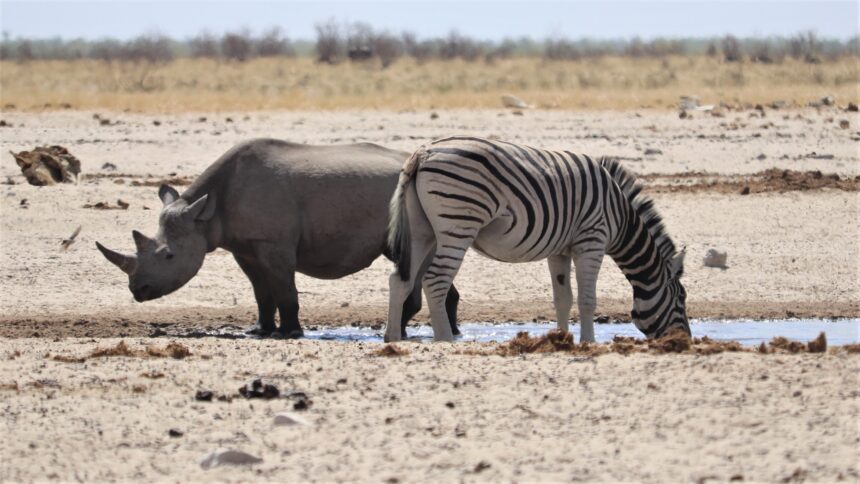Paulina Ndalikokule
The ongoing drought that has its grip on most parts of Namibia has not spared wildlife either, the environment ministry says.
The drought is also severely impacting conservation efforts, but has not yet led to increased mortalities, reduction of wildlife numbers or any endangered species, environment ministry spokesperson Romeo Muyunda stated.
While responding to questions by New Era, revealed the scarcity of rainfall in the affected regions has resulted in a dire shortage of water and grazing resources for wildlife.
“We are currently busy with an assessment to establish the impact of drought on conservation. We know for a fact that the drought has an adverse impact on grazing and water for animals in both national parks and conservancies,” he
said. In anticipation of the negative impact of the drought situation, the ministry is managing the current grazing vegetation and water resources, and reducing wildlife numbers is some parks where numbers exceed available grazing and water.
Muyunda added that arrangement has been made with the Office of the Prime Minister and Meatco for the ministry to provide game meat for the drought relief programme.
“In this way, we resolve two issues, manage our wildlife population, and contribute meat towards the most affected communities in our country. We also provide water for game in communal conservancies affected by drought.
“A good example of this is the Hippo situation at Lugala pond in the Zambezi region. The ministry has intervened by drilling a borehole and providing resources for pumping water. We believe that the situation there is by far the worst impact of drought on wild animals we have recorded,” the spokesperson said.
Recently, the media reported that two people were attacked and killed by elephants. Some people claimed it could be that wildlife are frustrated by drought.
However, Muyunda said the reported incidents are isolated, and not related to the drought situation.
“What is true is that with the drought, conflicts are imminent with both people and wild animals moving in search for water and food,” he said.
He advised those in areas prone to wildlife to always be vigilant and cautious.
“We urge members of the public not to engage in risky activities such as moving at night, swimming, bathing and washing in rivers, or leaving their livestock straying unattended,” Muyunda said.
In March, the ministry sounded the alarm on the rapid decline of wildlife habitats due to deforestation and industrial emissions, exacerbating the impacts of climate change and hindering efforts to sustainably manage natural resources.
According to the ministry’s statistics that were reported in the media, the poaching statistics are alarming, with 67 rhinos and eight elephants falling victim to poaching last year alone.
Additionally, eight rhinos have already been illegally killed this year.
Over the past decade, Namibia has documented 631 poaching incidents, with the highest numbers reported in 2022.
The ministry attributed the persistence of poaching to poverty, with individuals enticed by big payments, despite the lack of local demand for ivory, horns and pangolin scales. –ndalikokulep@gmail.comx



